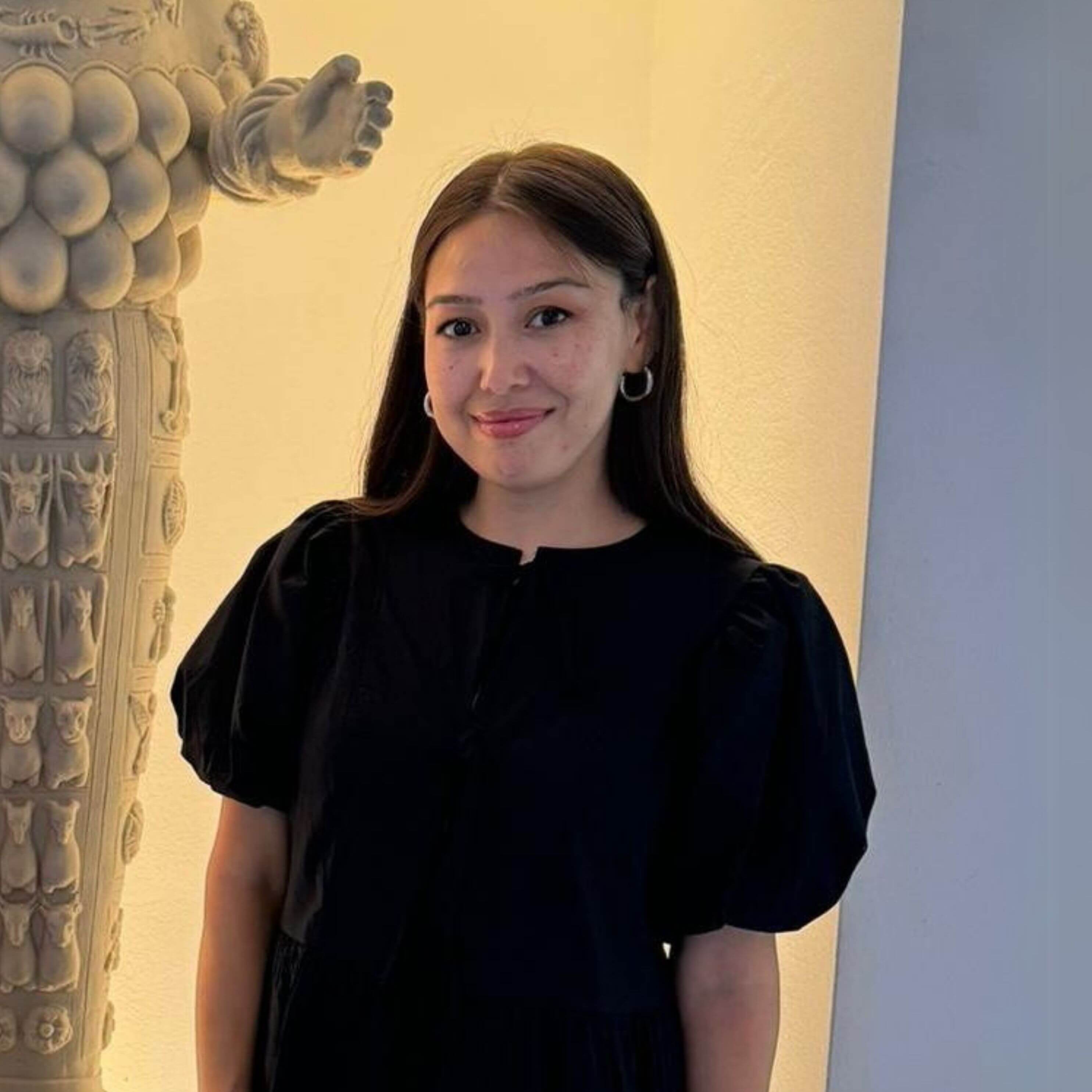IZMIR MEDITERRANEAN ACADEMY MANIFEST -2012
In today’s world, the economies compete with one another through big cities. For that reason, management of big cities not only give service to their citizens, but also undertake leading role of their cities in competing in the field of economy. Thus, the variety of function has been reflected to the local government law of Turkiye.
Izmir contributes to the globalisation and transition to information society being one of the biggest 130 cities in the world. Within that period, Izmir structures both itself and its hinterland as a urban zone.
Having a peculiar place in democracy history of Turkiye, Izmir treats in accordance with the democratic tradition in forming new function of city management. There is a communion between Izmir public and opinion leaders that Izmir needs to leap forward in economy and life quality and Izmir has the potential and position to make the progress.
Izmir Metropolitan Municipality has determined the city vision which will provide the peak in a democratic period. In Culture and Art Workshop gathered in 24th October 2009, a progress vision with three bases have been established with the attendance of scientists, and artists who are Izmir citizens and Izmir lovers. The first one is Izmir to have the characteristics of design and innovation for having a more advanced place in world economy business, second is to reach the goal open to abroad and focusing a network of relationship formed between Mediterranean big cities. Third is to apply the vision in a management mentality which is democratic and has participative practices and respectful to human dignity.
It is essential to make long term effort for all public regions in order to make this vision come alive. There come out the necessity of long term institutionalizaiton which can undertake the intellectual and organizational load for the vision. A consensus has been reached by the Metropolitan Municipality Consultancy mechanisms that “Izmir Mediterranean Academy” can be the institution and execution has been carried into.
Izmir Mediterranean Academy has basically two functions. The first is that is an institution of idea. On that sense, it will develop the strategies which will actualise the vision, in this way it will broaden Izmir’s horizon, the works will not be confined in routines but will be open to continuous innovation and contribute with sharers for the intellectual capasity to improve Izmir’s vision.
The second primary function of Izmir Mediterranean Academy is to create a platform where sharers will interact with each other, where functions that they undertake in realizing vision will be determined, where application promises will be given. Its being an institution which will realize both of the functions makes it authentic.
Rather than being an unwieldy institution which has large staffs, which generates its thoughts by itself, which makes researches by itself, which tries to carry out solutions by itself, that is, which makes the works by itself, It has to have a flexible and innovative mentality, which triggers capacities of Izmir and Izmir lovers, which brings them together, which encourages them to do, which provides their commitment to functions.
This institution capacity and commitment must accomplish organization which has a high skeleton crew, which can widen, narrow, and improve partnerships not with hierarchic division of work but according to the work it has taken, which can utilize the power and creativity of the horizontal relations.
When the Academy’s area of activity is defined with the referral to Izmir’s vision, a wide area comes up. It cannot be expected from The Academy to operate in all areas. Therefore, it is expected to operate in a narrower area as an eclectic. After succeeding in certain areas, it will transfer this function to NGO’s or other institutions; it will also start being a Pioneer in a new area.
At the starting stage, it was decided that the Academy would give priority to three subjects. First of them is to handle history of Izmir again with the perspective of its being a Mediterranean city. When you develop a vision to a city, the history must be written again for this vision to be able to gain profoundness. This is basically an academic operation. Researches will be made, international meetings, workshops, competitions will be held, exhibitions will be opened. Izmir Metropolitan Municipality will activate Ahmet Piristina City Museum. This operation will be a function which it will maintain throughout all its life.
Improving design activity has been given priority on the vision of being design and innovation city within academy operations. The main reason of this is that Izmir has an improvement potential of design demand in Izmir and also there are improved departments related to design in the universities in Izmir. After this decision was taken, a Design Forum with broad participation was held in Izmir on 31st May 2011. Roles that different actors would undertake in Izmir’s becoming a design city were defined. Izmir Metropolitan Municipality will use its own authority to improve the people of Izmir’s living awareness in designed environments and also will provide the use of opportunities of Izmir Fair on displaying design activities.
The third area on which Academy activities would focus was chosen as realizing detailed programming which will provide Izmir’s development as sustainable city. This includes a wide range of area from founding an ecological village to disposing of solid waste, to purify waste water, to constructing buildings whose carbon consumption is reduced, to food safety, to organic agriculture. These activities will be realized by paying special attention particularly to partnership which will be improved with international institutions especially with Mediterranean cities.
After the Academy began operating from such starting point, while it will improve its organization, vary its activities, it will also be open to experimentality, will improve its organization by leaning to evaluating results taken.
Mediterranean Academy chose culture and art areas which will have an indispensible place in Izmir’s future vision as the fourth priority area according to strategic priorities determined in Culture Workshop which was held in 2009 when the foundation was laid. Academy has aimed at playing the role culture industry deserved in the city’s economical and social development by taking culture, education, including information, with their largest definitions, and aimed at making “Creative Izmir” concept reality by providing cultural activities’ being in the center of the lives of the people of Izmir. When carrying out the Works in this area, the Academy supervises and encourages participation of all the people of the city especially children, youngsters and women into the cultural life and on the other hand, it will try to root cultural governance, which will be created with contributions and the dialog of the institutions of central administration in the city, local authority, non-governmental organizations, and the artists, between the city practices.
Mediterranean Academy will try to play a pioneer role in forming a “Mediterranean cultural network” within the interaction of Izmir with the cities and cultural attempts which contribute to Mediterranean’s cultural mobilism in all cultural and art Project and activities.

Prof. Dr. Halil INALCIK
Bilkent University Academic Member
Historian
Mediterranean Academy Founding Honorary President and Science Board Member
www.inalcik.com
İnalcık was born in Istanbul in 1917 and he is one of the prominent names of the Turkish historiography. He graduated from Ankara University Language, History and Geography Faculty in 1940. He started working as an assistant in the department of Contemporary History of the same faculty and he completed his doctorate with the thesis titled “Reforms and Bulgarian Problem” in two years.
He became a professor in 1952 and İNALCIK lectured in Language, History and Geography Faculty and Faculty of Political Sciences between 1956 and 1972. When he retired in 1972, he was invited to Chicago University. He lectured as a professor in the History Department of the University for 11 years between 1972 and 1983.
He was chosen as member of Turkish, Serbian, American, English and Albanian Academies. He received many awards including Repuclic of Turkey Ministry of Foreign Affairs Distinguished Service Medal, Presidency Culture and Art Grand Award, Ministry of Culture Art and Culture Grand Award and also Grand National Assembly of Turkey Grand Award. He has been working at Bilkent University since 1993.
MAJOR WORKS
Reforms and Bulgaria Affairs, Ankara: Turkish Historical Society, 1943
Hijri 835 dated Suret-i Defter-i Sancak-ı Arvanid, Ankara: Turkish Historical Society, 1954
Investigations and Documentaries in Fatih Era, Ankara : Turkish Historical Society, 1954
Hijri 835 dated Suret-i Defter-i Sancak-ı Arvanid, Ankara: Turkish Historical Society, 1954
The Ottoman Empire: the Classical Age, 1300-1600, London: Weidenfeld and Nicholson, 1973.
Gazavât-ı Sultân Murâd b. Mehemmed Hân İzladi and Battle of Varna (1443-1444) Anonym Gazavâtnâme, Ankara: Turkish Historical Society, 1978
Tursun Beg, The History of Mehmed the Conqueror, Chicago-Minnesota: American Research Institute, 1978 (R. Murphey ile birlikte).
The Ottoman Empire: Conquest, Organization and Economy, London: Variorum Reprints, 1978.
Social and Economical History of Turkiye (1071-1920), Ankara: Meteksan, 1980 (editor with O. Okyar).
Studies in Ottoman Social and Economic History, London: Variorum Reprints, 1985.
Archieve Studies and Examination in Ottoman Empire Society and Economy. Istanbul: Eren, 1993.
The Middle East and the Balkans under the Ottoman Empire, Bloomington: Indiana University Turkish Studies and Turkish Ministry of Culture Joint Series Volume 9, 1993.
The History of the Black Sea Trade: the Register of Customs of Caffa. Cambridge: Cambridge University Press, 1993.
Suleyman the Second and his Time, Istanbul: Isis Press, 1994 (editor with C. Kafadar).
An Economic and Social History of the Ottoman Empire, Cambridge: Cambridge University Press, 1994 (Halil İNALCIK has written between1300-1600 and editor with D. Quataert).
From Empire to Republic: Essays on Ottoman and Turkish Social History, Istanbul: Eren, 1995.
Essays in Ottoman History, Istanbul: Eren, 1998.
Ottoman, 12 books, Istanbul: Yeni Turkiye Press, 1999 (editor with N. Goyunc, E. İhsanoglu, Y. Halacoglu).
Government, Justice and Law in Ottoman Istanbul: Eren, 2000.
Poet and Boss, A Research on Patrimonial Government and Art Sâir ve Patron, Ankara: Dogu Batı Press, 2003.
Ottoman Civilization, 2 books, Istanbul: Ministry of Culture, 2004 (editor, with Gunsel Renda)
Articles on East&West I, Ankara: Dogu Batı Press, 2005.
Reforms/Ottoman Empire in Peiod of change, Ankara: Phoenix Press, 2006 (editor, with M. Seyitdanlıoglu).
Turkey and Europe in History, Istanbul: Eren, 2006.
Ataturk and Democratic Turkiye, Istanbul: Kırmızı Press, 2007.
Ottoman Sultans in Foundation Era, Istanbul: İsam Press, 2010.
Ottomans, Istanbul: Timas Press, 2010.
Ottoman Government in Foundation and Empire Period, Law Diplomacy, Istanbul: Timas Yayınları, 2011.
Has-bagcede ‘ays u tarab Nedîm, Sâir, Mutrib, Istanbul: İs Bankası Cultural Press, 2011.
Period of Identification with Reneissance Europe and Turkiye Civilization, Istanbul: İs Bankası Cultural Press, 2011.
Studies in the History of Textiles in Turkey, İs Bankası Kultur Yayınları, 2011.
The Survey of Istanbul, Istanbul: İs Bankası Kultur Yayınlar, 2012.
HIS PROJECTS AND THE SCIENCE INSTITUTIONS HE FOUNDED
1. When Halil İNALCIK started working on kadi registries in 1950’s, he appealed to Museums General Directorate in Ankara for the registries which were found in dust and dirt and in a pile thrown away in a cell in Green Madrasa by Sultan I. Mehmed (1413-1421), to be put in order. This archive goes up to Fatih era and it is the oldest Ottoman Archive. These registries have unique value. General Director accepted his proposal of forming an organized archive from these registries. The registries were sent to Istanbul. They were bound and put in order. They were set in good order in a special archive in Bursa Archeology museum. And they have been put into service of researchers.
2. After the II. World War, in parallel with development of social and economic history researches in the world, İNALCIK founded International Association for Social and Economic History of Turkey which he thought it as a platform where Ottoman History would be researched on the base of these Dynamics, where the results would be presented to science world, and where historians, who are interested in the subject, would come in a regular basis.
and he, as the head of this union, presided 10 international congresses called International Congress on the Social and Economic History of Turkey. Dates and places of these congresses are:
Hacettepe Universitesi, Ankara (1977)
Strasbourg Universitesi, Strasbourg (1980)
Princeton Universitesi, Princeton (1983)
Munih (1986)
Istanbul (1989)
Aix-en-Provence (1992)
Heidelberg (1995)
Bursa (1998)
Dubrovnik (2001)
Venedik (2005 )
Viyana (2010)
3. The other Project INALCIK undertook is The History of the Scientific and Cultural Development of Mankind which was published by UNESCO. This work was planned as seven volumes. He, together with Prof. Peter Burke from Cambridge University, was assigned as the head editor of the fifth volume which comprises the years of 1500-1800 of this work. The book was Published in 1999. (History of Humanity-Scientific and Cultural Development: From the Sixteenth to the Eighteenth Century, London: Routledge, 1906).
4. Halil İNALCIK
Research Project / Istanbul History according to Ecclesiastical Registries: He started a new Project on evaluating city archive which contains about ten thousand books from Istanbul Ecclesiastical Court registries collections for Istanbul History in 1980’s. (This archive was placed in a special building of Office of Mufti of Istanbul. This archive was organized as a result of increasing interest in Islamic sciences and Islamic Law in II. Abdulhamid (1876-1905) era. It was attached to Shayk al-islam. This archive is primarily important not only for Istanbul History but also for general Ottoman city, craftsmen, trade, and law history.) Prof. İNALCIK came together with Prof. A. Kuran, Prof. Z. Toprak for this purpose. He sought ways to establish an institute or a foundation. Committee became larger when Prof. N. Atasoy joined into it. Establishing a foundation or an institute was planned. Because of the difficulties in obtaining financial sources, realizing the Project delayed a while. In the end, it was decided with the attempt of Prof. Atasoy that the Project would be started as a Project attached to Istanbul University Literature Faculty Art history center. The Project has been maintained with Sabancı University – Packard Humanities Institute (PHI) partnership since 1999. the first book of the Project was published with the title Istanbul Court Ecclesiastical Registry no:121 (prepared by S.N.Aykut, Istanbul, 2006)
5. Halil İnalcık founded Center for Ottoman Studies in Bilkent University in 2003. Halil İNALCIK donated copies of documents and books which he collected from different archives for years, research texts which were not completed, more than 1000 offprints and other materials to this center. It will be put into use of researchers in the center where classification Works have been carried out in the near future. Yalova Municipality Halil İNALCIK Research Institute
THE WORKS WHICH HE FOUNDED AND EDITED
Archivum Ottomanicum (The Hague, 1969, founder with T. Halasi-Kun)
Ottoman Research Journal (Istanbul, 1980, with H. Lowry ve N. Goyunc)
History of Scientific and Cultural Development of Mankind, Book: V (History of Humanity- book, with V. P. Burke)
Ottoman Empire and Its Heritage, Editor: with Fraqhui (Leiden: Brill, 45 books have been published since 1998 in these series)
Ottoman Civilization, 2 books (Istanbul: Ministry of Culture, 2001, the work has also been published in English)
SCIENTIFIC JOURNALS WHICH HE ATTENDS THE EDITORIAL BOARD
Turcica (Paris)
Harvard Ukrainian Studies (Cambridge)
East European Quarterly (Boulder, Colorado)
Turk Tarih Kurumu Belgeler Dergisi
(Turkish Historical Society Documents Journal -Ankara)
Studia Islamica (Paris)
Dogu Batı (East West-Ankara)
SCIENTIFIC INSTITUTION MEMBERSHIP
Turkish Historical Society, Founding Member
Association Internationale des Etudes du Sud-Est Européen, Member (1964-1974), President (1971-74)
Turkish Cultural Research Institute, Member (1960)
Srpska Akademija Nauka i Umetnost (Serbia Science and Art Academy), Belgrad, Member (1991)
The Royal Historical Society, London, Corresponding Member (1974)
The Royal Asiatic Society, London, Honorary Member (1978)
L’école des hautes études en sciences sociales, Paris, Visitor Director (1979)
American Academy of Arts and Sciences, Fellow (1983)
Turkiye Ataturk Supreme Council for Culture, Language and History, Member (1993)
Turkiye Science Academy, Honorary Member (1993)
Middle East Studies Association, Honorary Member (1994)
American Historical Association, Honorary Member (1995)
Middle East Society of North of America (MESA), Honorary Member
Institutul de Istorie Nicolae Iorga (Nicolae Iorga Tarih Enstitusu), Bucharest, Honorary Member (1995)
The British Academy, Corresponding Member (1995)
Ministry of Culture 700th anniversary of Foundation of Ottoman Empire Editorial Board (1998)
General Directorate for Foundations Research Board, Member (1998)
Institute of Turkish Studies, Washington, Member (Administrative Board, 1998)
Halil İNALCIK Research Project, Sabancı University-in association with Packard Humanities Institute “Istanbul history according to Ser’iyye records (islam religion in court records), Istanbul History”, Honorary President (1999)
Vehbi Koc awards Selection Committee, Member (2002)
CONFERRED HONORARY PhD
Bosphorus University, Turkiye (1986)
University of Athens, Greece (1987)
Selcuk University, Turkiye (1992)
University of Jerusalem, Syria (1993)
University of Bucharest, Romania (1993)
Uludag University, Turkiye (1995)
University of Balıkesir (1999)
Sofia University, Bulgaria (2001)
Manas University, Kyrgyzstan (2004)
Eskisehir Osmangazi University, Turkiye (2005)
Koc University, Turkiye (2006)
Trakya University, Turkiye (2007)
Mehmet Akif Ersoy University Title of Honorary PhD, Turkiye (2008)
Suleyman Demirel University Title of Honorary PhD, Turkiye (2008)
Pamukkale University Title of Honorary PhD, Turkiye (2008)
Yalova University Title of Honorary PhD, Turkiye (2009)
Mediterranean University Title of Honorary PhD, Turkiye (2009)
Cuhmuriyet University, Sivas (2010)
Erciyes University, Kayseri (2011)
Azerbaijan Academy of Sciences Title of Honorary PhD (2012)
AWARDS, MEDALS, ORDERS
Rockefeller Foundation Research Scholarship, Harvard University (1956)
Research Center for Islamic History, Art and Culture (IRCICA) award, Organization of the Islamic Conference (1986)
T.R. Ministry of Foreign Affairs Medal of Distingusihed Service and Diploma (1991)
Prof. Dr. Mustafa Parlar Education and Research Foundation Award, ODTU (1992)
Sedat Simavi Foundation by Ottoman Empire Society and Economy work (Istanbul: Eren, 1993): best Work Award in Social Sciences, Istanbul (1993)
Titulesco Medal of Distingusihed Service, Romania Embassy, Ankara (1995)
Istanbul University Institute of Turkic Studies Award (1998)
Balıkesir University Appreciation Plaque (1999)
Turkish Cultural Service Foundation
Appreciation Plaque (2000)
Presidency of Hungary Oder of Merit (2002)
T.R. Ministry of Culture Great Arts and Culture Prize (2002)
Writers Union of Turkey, Sukran Beratı (2003)
Ministry of National Defence Plaque (2003)
Uskudar Municipality Plaque (2003)
Ankara University Appreciation Plaque (2003)
Bursa Foundation of Culture Art and Tourism, Award for Bursa National Culture Life (2004)
Turkish Organization of Administrators Award (2008)
Turkish Parliament Honour Award (2008)
Rotary International Career Award (2008)
Crimerian Foundation of Progress Honour Award (2009)
Bursa Honorary Citizenship Award (2010)
King Faysal International Prize(2011)
Turksoy Medal of Honour (2012)
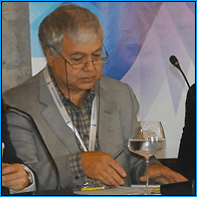
Prof. Dr. İlhan TEKELİ
Middle East Technical University Academic Member
Urban and Regional Planner, Social Scientist
Izmir Metropolitan Municipality Mayor Consultant
Mediterranean Academy Founding Honorary President, Science Board and Management Board Member
He was born in Izmir, in 1937. He completed his primary and secondary education in Izmir. He graduated from Istanbul Technical University Constructional Engineering Department.
He got master’s degree in City and Regional Planning at Middle East Technical University in 1964 and at Pennsylvania University in 1966. He did his doctorate in City Planning at Istanbul Technical University in 1968. He lectured at different universities abroad as a guest professor. He was a member of advisory committees in many municipalities and institutions.
He is the founder and member of Executive Committee of World Academy for Local Government and Democracy(WALD). He is the founder-head of Turkey Economic and Social History Foundation. He was a member of General Board of Council of Higher Education between 2004 and 2008.
TEKELİ has more than 50 books, more than 400 articles and conference notifications in different languages. He won many awards in the field of Social Sciences. He has lots of works in the fields of city and regional planning, planning theory, macro geography, migration geography and political behavior, local governments’ theory and history in Turkey, urbanization and urban policy, economic policy, economic history of Turkey, city and society history since 1964.
HIS CHOSEN PUBLISHINGS
İlhan Tekeli, Tarık Okyay: Story of the Dolmus, environment and Architecture Sciences Association, Ankara,1977, p.1-304.
İlhan Tekeli, Leila Erder: Migration as an Adaptation Process of Spatial Organization, Hacettepe university Publishing, Ankara,1978,p.1-388.
İlhan Tekeli, İlber Ortaylı: Evolution of Municipal Administration in Turkey Turk Administrators Association, Ankara,1978 p.1-312.
A Macro Approach to Spatial Organization in Turkey ODTU Architecture Faculty, Ankara, 1979.
İlhan Tekeli, Selim İlkin: Emergence of Statism in the Stage of Implementation, Turkey Documental Economy History.3, ODTU, Ankara, 1982, p.i-x, 1-356.
Urban Planning Conferences TMMOB Architectures Chamber, Ankara, 1991.
İlhan Tekeli, Selim İlkin: Turkey and European Community volume.l and II, Umit Publishing, Ankara,1993.
The Development of the Istanbul Metropolitan Area, Urban Administration and Planning, IULA-EMME, Yıldız Technical University, Istanbul, 1994.s., 1-320
Thinking on Historiography, Dost Bookstore, Ankara, 1998,p.1-168.
Consciousness and, Youth, A Comparative Survey in Europe and Turkey, History Foundation Yurt Publishing, 1998, i-xi, 1-258.
HIS BOOKS
Story of the house in life and Literature in Turkey (1923 – 1980), History Foundation Yurt Publishing,
Life stories with the things that he could tell and he couldn’t History Foundation Yurt Publishing
Usak Central Committee when passing from Civil Resistance in Aegean region to War of Independence and İbrahim (TahtaKılıc) Bey, İlhan Tekeli, Selim İlkin, Turkish History Institution Publishing
NGO’s and participating Democracy writings for Turkey , History Foundation Yurt Publishing
Education Writings for Turkey History Foundation Yurt Publishing
City, City rights, Urbanization and urban Renewal , History Foundation Yurt Publishing
Social System Writings, History Foundation Yurt Publishing
Settlement System and settlement dates in Anatolia, History Foundation Yurt Publishing
Politics and democracy writings for Turkey, History Foundation Yurt Publishing
Design, Architecture and Architectures, History Foundation Yurt Publishing
To think Residence Problem with Residence Presenting Ways, History Foundation Yurt Publishing
Daily Life, Life Quality, and Localness Writings, History Foundation Yurt Publishing
Industry writings For Industry Society, History Foundation Yurt Publishing
Information Science Writings of the Spatial and the Social, History Foundation Yurt Publishing
Urban Transportation History Writings for Istanbul and Ankara, History Foundation Yurt Publishing
Modernism, Modernity and Turkey’s City Planning History, History Foundation Yurt Publishing
from wise Planning to Planning as a democracy Project, History Foundation Yurt Publishing
Urban Plot, infrastructure and urban services, History Foundation Yurt Publishing
To protect Natural and Historical Environment within the context of Culture Politics and Human Rights, History Foundation Yurt Publishing
Turkey Financial Development Plan in the Post War Environment in 1947, İlhan Tekeli, Selim İlkin, Bilge Culture Art
Formation of Statism in Turkey When Passing into Practice, İlhan Tekeli, Selim İlkin, Bilge Culture Art
Municipalism Story of the Republic (1923-1990), History Foundation Yurt Publishing
Turkey’s Financial Politics Searches of Turkey in the World Recession of 1929, İlhan Tekeli, Selim İlkin, Bilge Culture Art
Migration and beyond, History Foundation Yurt Publishing
Formation and transformation of Education and Information Producing System in Ottoman Empire, İlhan Tekeli, Selim İlkin, Turkish History Institution Publishing
Regional Inequality in Turkey and Regional Planning writings, History Foundation Yurt Publishing
Towards a History Which is written and learned Together, History Foundation Yurt Publishing
Mortar of the Republic Volume: 3 when infrastructure of Modernity forms, İlhan Tekeli, Selim İlkin, Istanbul Bilgi University Publishing
Mortar of the Republic Volume: 2 Development of Financial Politics of Radical Modernity , İlhan Tekeli, Selim İlkin, Istanbul Bilgi University Publishing
Mortar of the Republic Volume: 1 Birth of radical Modernity, İlhan Tekeli, Selim İlkin, Istanbul Bilgi University Publishing
To tell the staff and Staffers the Story of a Republic , İlhan Tekeli, Selim İlkin, History Foundation Yurt Publishing
Politics when Indoctrinating Modernity, İmge Bookstore Publishing
History Conscious and The Youth, History Foundation Yurt Publishing
To Think on Education, Turkey Sciences Academy TUBA
City Planning when Indoctrinating Modernity, İmge Bookstore Publishing
To think on Historiography, Dost Bookstore Publishing
AWARDS
Sedat Simavi Social Science Award (1989)
Mustafa Parlar Science Award (1994)
IZMIR MEDITERRANEAN ACADEMY BOARD

Assoc. Prof. Ulaş Bayraktar
Ulaş Bayraktar, a graduate of Galatasaray University Public Administration, completed his master’s and doctoral studies at the Paris Institute of Political Sciences. In addition to being a co-founder of Kültürhane, he currently works as a faculty member at Mersin University. He continues his scientific and practical works on local politics, participatory democracy, public policies and cultural studies.

Prof. Dr. Şebnem Gökçen
Dr. Şebnem Gökçen is a Professor at Izmir University of Economics, Faculty of Fine Arts and Design, Department of Architecture. She is retired from Dokuz Eylul University, Department of City and Regional Planning, where she has been the Department Head. She is an urban planner and designer and her academic work focuses mainly on urban design, cultural planning, the cultural and creative industries, culture-led urban regeneration, and public art.

Prof. Dr. Emre İşeri

Prof. Dr. Ferhat Kentel
As part of Art Venue İzmir – AVİ, Ferhat Kentel continues his work in Sociology Shop, a research and civil society initiative he co-founded in 2024. He has been giving part-time lectures at Yaşar University since october 2023. He co-produces the program called Hüsnükabul on Açık Radyo together with Waseem Ahmad Siddiqui, focusing on immigrant rights.
Having completed his undergraduate education in Management at METU in 1981, he received his master degree in 1983 from the Faculty of Political Sciences at Ankara University, and his doctoral degree in Sociology in 1989 from Ecole des Hautes Etudes en Sciences Sociales (EHESS) in Paris. He has worked as faculty member in the French Public Administration department at Marmara University, İstanbul Bilgi University Sociology Department and lastly, the now-closed İstanbul Şehir University Sociology Department. He was, from 2020 to 2024, the general coordinator of the Bayetav foundation that he co-founded. His articles in the fields of daily life and emotion sociology, new social movements, religion, Islamic movements, intellectuals, ethnic communities got published in several books and magazines in Türkiye and abroad.
Some of his published books are as follows: Euro-Turks: A Bridge or a Breach between Turkey and the European Union? (with A. Kaya) 2005; The Indivisible Unity of the Nation: Nationalism(s) that Tear Us Apart in Democratization Process (with M. Ahıska and F. Genç), TESEV, 2007; Undomesticated, Unsubdued, Defiant, (Interview: E. Elmas), Hayy Publication, 2008; Armenians in Turkey: Community-Individual-Citizen (with F. Üstel, G. G. Özdoğan, K. Karakaşlı), 2009; Yeni Bir Dil – Yeni bir Toplum, (Interview: M.T. Çiçek, G. Tunalı Koç), 2012; Spatial Rural Socio-Economic and Cultural Transformation in Turkey: Modernized and Disappearing Traditional Spaces and Meanings (with Murat Öztürk), TÜBİTAK research, 2017; “We Live Together in Turkey” research, 2022.

Ercan Kesal
Born in 1959 in Avanos (Nevşehir), he completed his primary and secondary education in Avanos, his high school education in Nevşehir. He graduated from Ege University Faculty of Medicine in 1984. He has a master degree from Social Sciences Institute, Applied Psychology field of İstanbul Ticaret University. He currently continues PhD study in Yeditepe Univesity’s Social Antropology department.
His cinematic journey, which began with acting in the film Distant, continued as both a screenwriter and actor in 3 Monkeys and Once Upon a Time in Anatolia. He also worked as a screenwriter for The Annoucement and continued as an actor in films such as Vavien, Hair, Mold, Yozgat Blues, Thou Gild’st the Even, Government Woman (1-2), I’m Not Him, Sideway, Butterflies, and Passed by Censor. He has won Best Actor and Best Screenplay awards at numerous national and international film festivals. His first poems and writings were published in the Dönem magazine in İzmir while he was a medical student. During his compulsory service years as a doctor, he conducted interviews and wrote articles for Son Reçete magazine.
He is one of the founders of Era Publications. He also wrote for Şizofrengi. He regularly published contemporary stories and essays on Sundays in Radikal and Birgün newspapers. In 2013, his memoir-story book Peri Gazozu was published. Subsequently, his books Cin Aynası, Nasipse Adayız, Bozkırda Bir Geceyarısı, Aslında, Evvel Zaman, Zamanın İzinde, Kendi Işığında Yanan Adam, and Velhasıl were published in succession.
His first directing work is a documentary: Fındıktan Sonra (After Hazelnuts). In 2018, he directed his first feature-length fiction film, Nasipse Adayız, for which he also wrote the screenplay.

Prof. Dr. Pınar Okyay
She graduated from Bornova Anatolian High School in 1983, Ege University Faculty of Medicine in 1989 and Dokuz Eylul University Institute of Health Sciences, Department of Public Health in 1993. Her primary field of work is public health, with a particular focus on epidemiology, health research methods, research and publication ethics, biostatistics, women’s health and disaster-related health issues. While serving as Chair of the Department of Public Health at Aydın Adnan Menderes University Faculty of Medicine, she retired following the 2024 local elections and assumed position of Deputy Secretary General at the Izmir Metropolitan Municipality.
She held several roles including Deputy Chief Physician at the University Hospital; Chair of Self-Assessment Board; member of the Executive Board of the Association of Public Health Specialists (HASUDER) during the 2016-18 term and Head of HASUDER’s Executive Board from November 2018 to July 2021. She is currently active in HASUDER’s working groups on Infectious Diseases, Gender and Reproductive Health and Disasters. She is on the editorial boards of two journals: one indexed in the Sci-Expanded international database, the other in ULAKBİM.
She is a member of TUKMOS -Ministry of Health’s Board of Specialization in Medicine- and Supervisory Committee of the Public Health Competency Board. During the pandemic, she served as a member of the Ministry of Health COVID-19 Scientific Advisory Board. She participates in several task forces within the Turkish Medical Association (TTB), primarily the TTB Public Health Branch. She has served as a member of the Board of Directors of Aydın Medical Chamber and as a delegate to the Turkish Medical Association; she is currently a member of the İzmir Medical Chamber.
She is a book lover, traveler and a weekly columnist for T24 Online Newspaper.

Dr. Can Özcan
Dr. A. Can Özcan is an assistant professor, founder and department head at Izmir University of Economics, Department of Industrial Design. His research and practice areas include design project management, design semiotics, creativity, design history and theory as well as marine and food and agriculture related designs. He is also running several national and international design projects as the general director of EKOTAM, Izmir University of Economics Design Research and Application Center

Prof. Dr. Eyüp Özveren
Prof. Dr. Eyüp Özveren was born in Ankara in 1959. He graduated respectively from Robert College in 1977 and Middle East Technical University Economy Department in 1981. He worked in Fernand Braudel Center of New York State University in the US between 1981 and 1991. He received his PhD degree from the same university with the thesis titled “An Ottoman Port City: Beirut, The Land Behind and World Economy”. He worked as a professor at METU Economy Department from 1991 until his retirement in 2018. He held visiting scholar and faculty positions at Boğaziçi University’s Atatürk Institute, the Maison des Sciences de l’Homme (Paris, France), and the Institut für Interkulturelle und Internationale Studien at the University of Bremen (Germany). Since the 1990s, he has been actively involved in major international networks and events in the field of Mediterranean Studies. He has contributed to the field with numerous publications in both Turkish and English, covering a wide range of topics from history to literature and from literature to the arts. Among his notable contributions are Port Cities of the Eastern Mediterranean (Tarih Vakfı Yurt Yayınları, 1994), originally published as a special issue of the journal Review in English and co-edited with Çağlar Keyder and Donald Quataert, and his widely acclaimed interdisciplinary work An Orient in the Mediterranean (Akdeniz’de Bir Doğu, Dost Yayınları, 2000). He has also published various studies specifically focusing on İzmir. His most recent work, Mediterranean Port Cities: Connectivity in Modern Times, co-edited with Filiz Yenişehirlioğlu and Tülin Selvi Ünlü, was published by Springer in 2023.

Goran Beus Richembergh
Goran Beus Richembergh was born in 1965 in Split (Croatia). He studied political science at the University of Zagreb. During his career he served as a manager in tourism and culture, politician and publicist. Four mandates (till 2020) he was Member of the Croatian Parliament and 1 mandate Member of the Parliamentary Assembly of Council of Europe. He is President of the Croatian – Turkish Friendship Association in Zagreb and organizer of the numerous cultural events.

Prof. Dr. Cenk Saraçoğlu
Prof. Dr. Cenk Saraçoğlu completed his undergraduate degree in the Department of International Relations at Bilkent University, and then earned his PhD in Sociology from the University of Western Ontario in Canada in 2009. He is currently working as a faculty member at the Faculty of Communication, Ankara University. His research focuses on areas such as nationalism, racism, urban sociology, migration, social movements, and Turkey’s political and social structure.

Dr. Elif Kocabıyık Savasta
Dr. Elif Kocabıyık Savasta is an assistant professor at Izmir University of Economics, Department of Industrial Design. Her research interests include design history, archival studies, design research methodology, design policy and social design. She has organized events to increase İzmir’s design capacity nationally and internationally.

Prof. Dr. Elena Frangakis Syrett

Prof. Dr. Yasuko Takayama
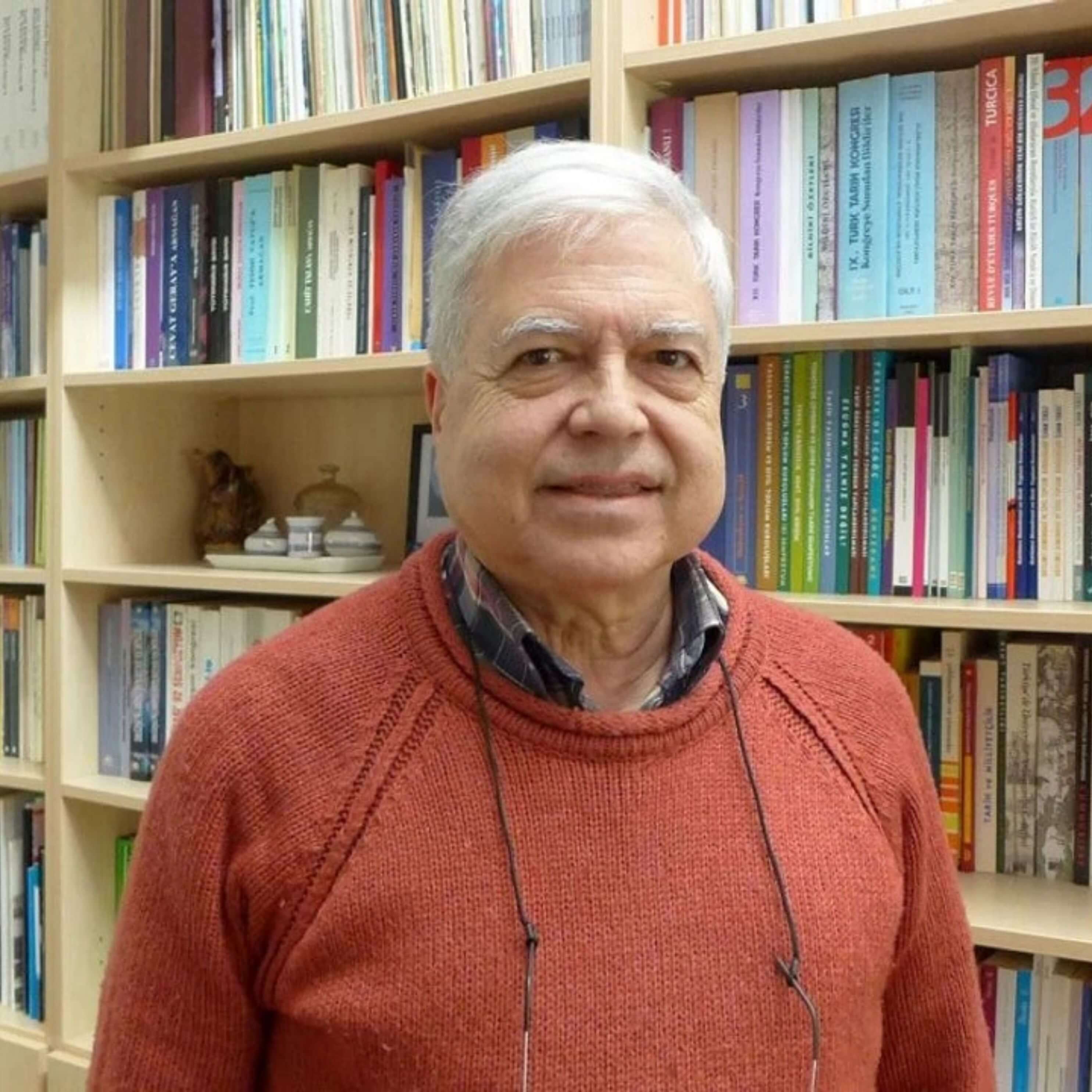
Prof. Dr. İlhan Tekeli
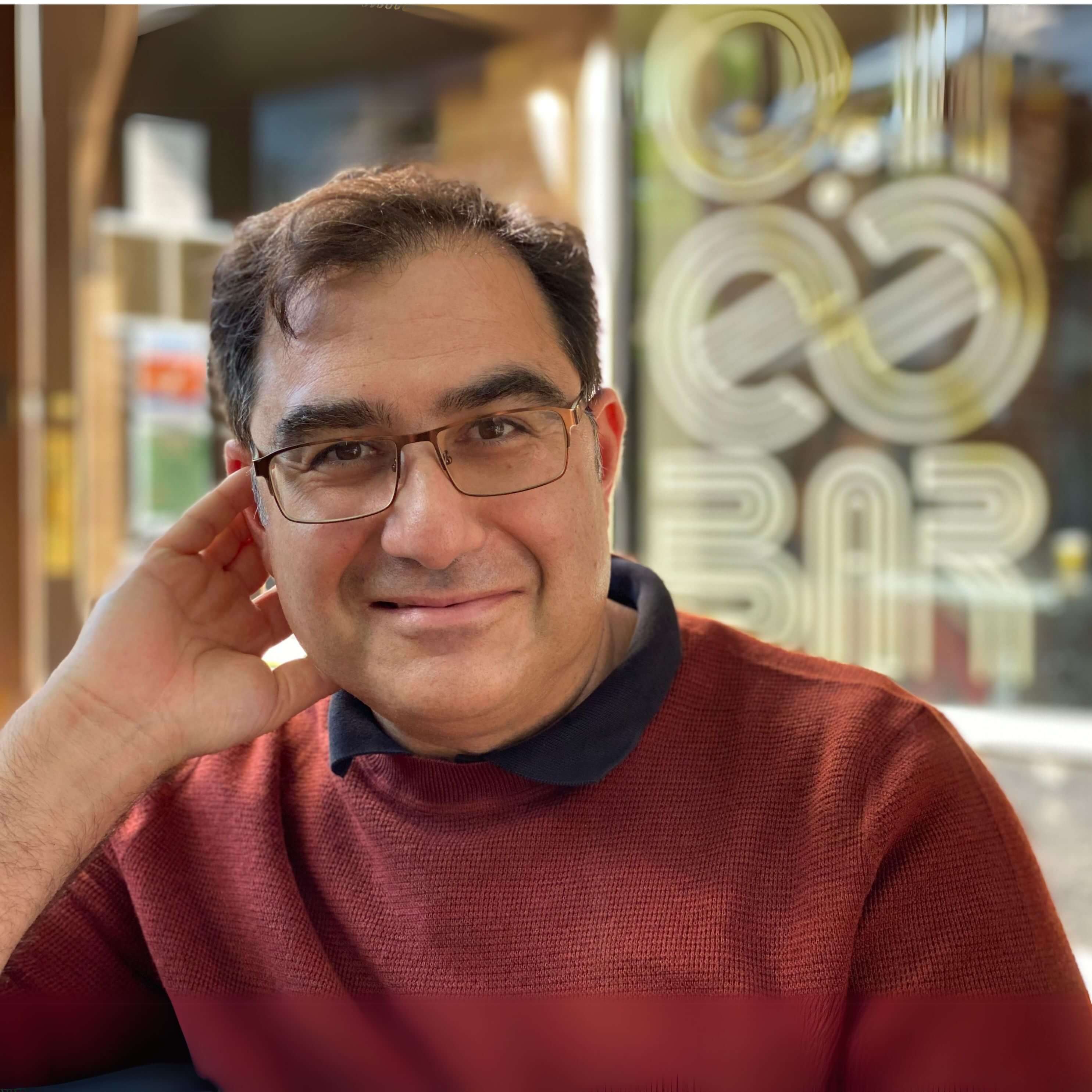
Prof. Dr. Ali Yaycıoğlu
EMPLOYEES OF ACADEMY



Ezgi ŞAİROĞLU
Mediterranean Cities Network Desk Coordinator
- +90 232 293 4607
- ezgisairoglu@izmir.bel.tr

Maya ARIKANLI ÖZDEMİR
Design Studies and Activities Coordinator
- +90 232 293 4614
- mayaarikanli@izmir.bel.tr

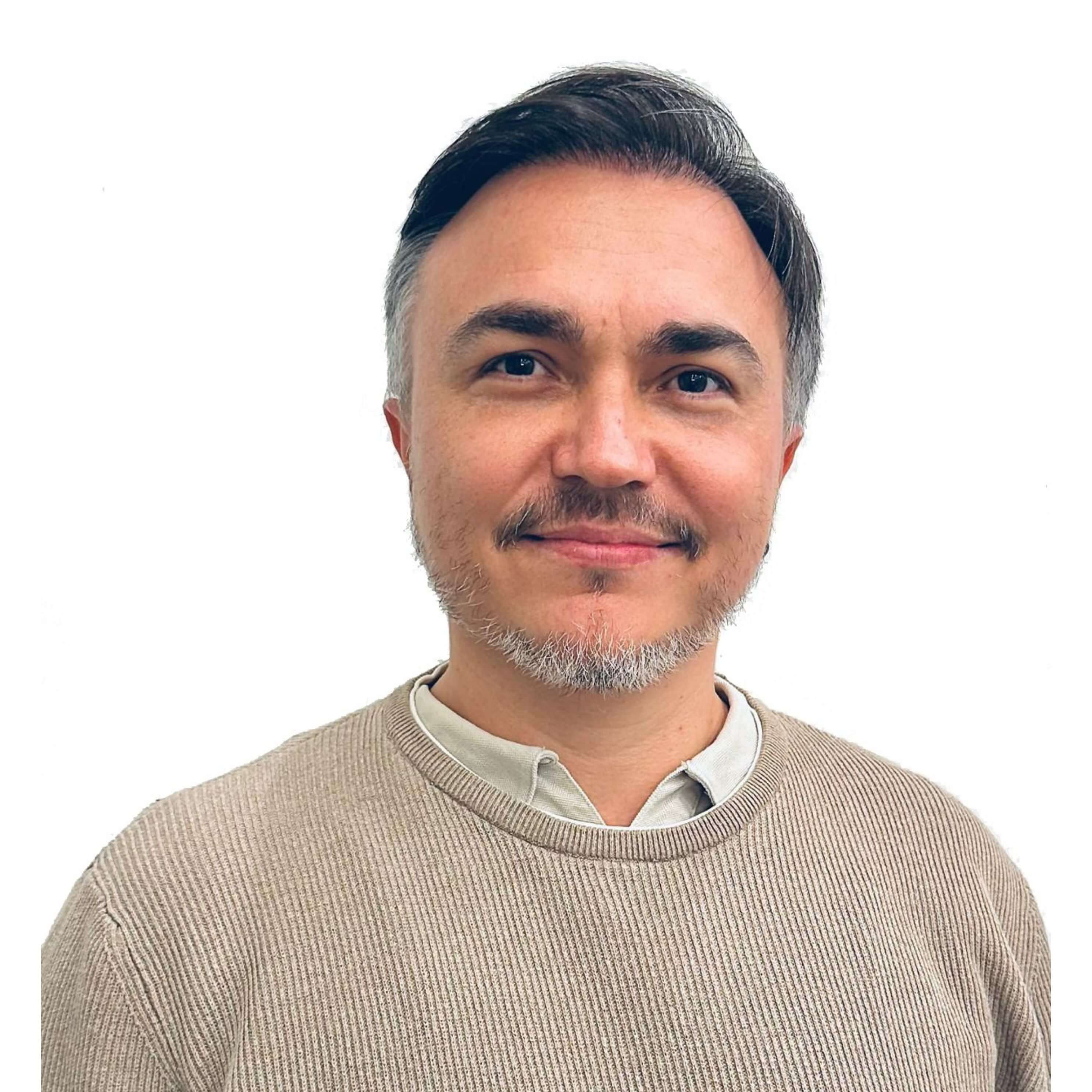
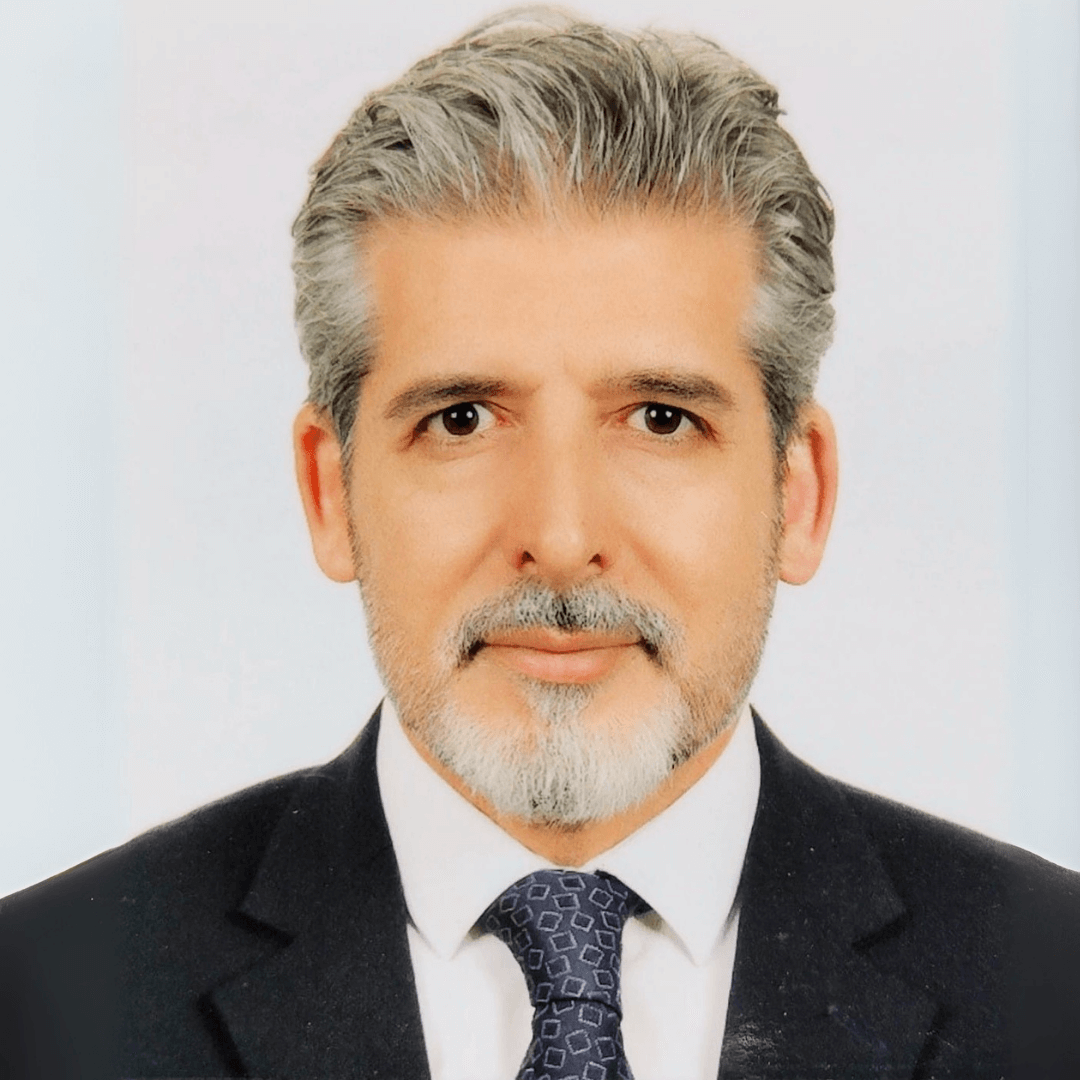
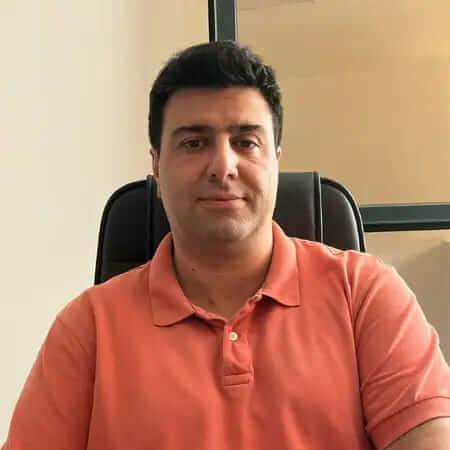





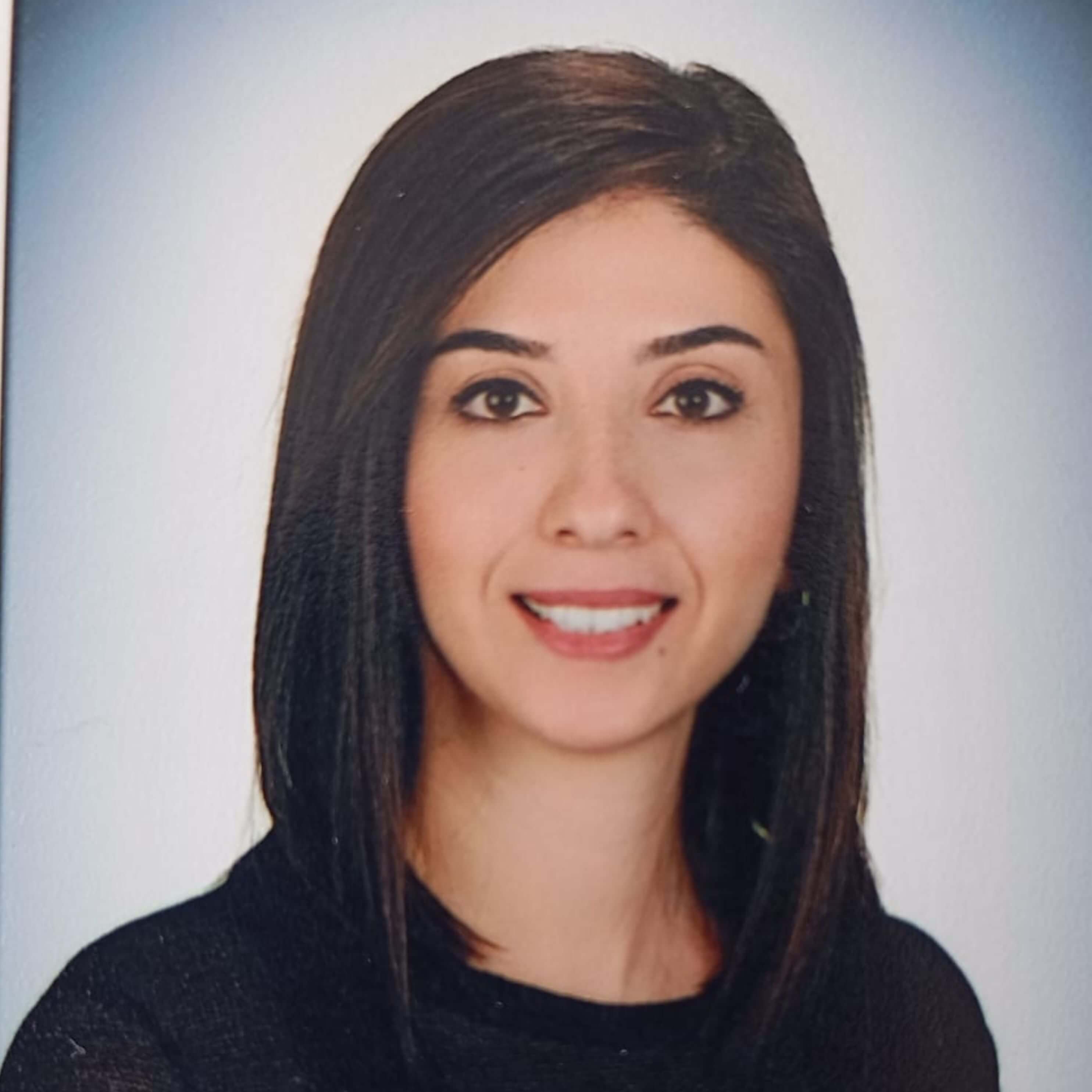
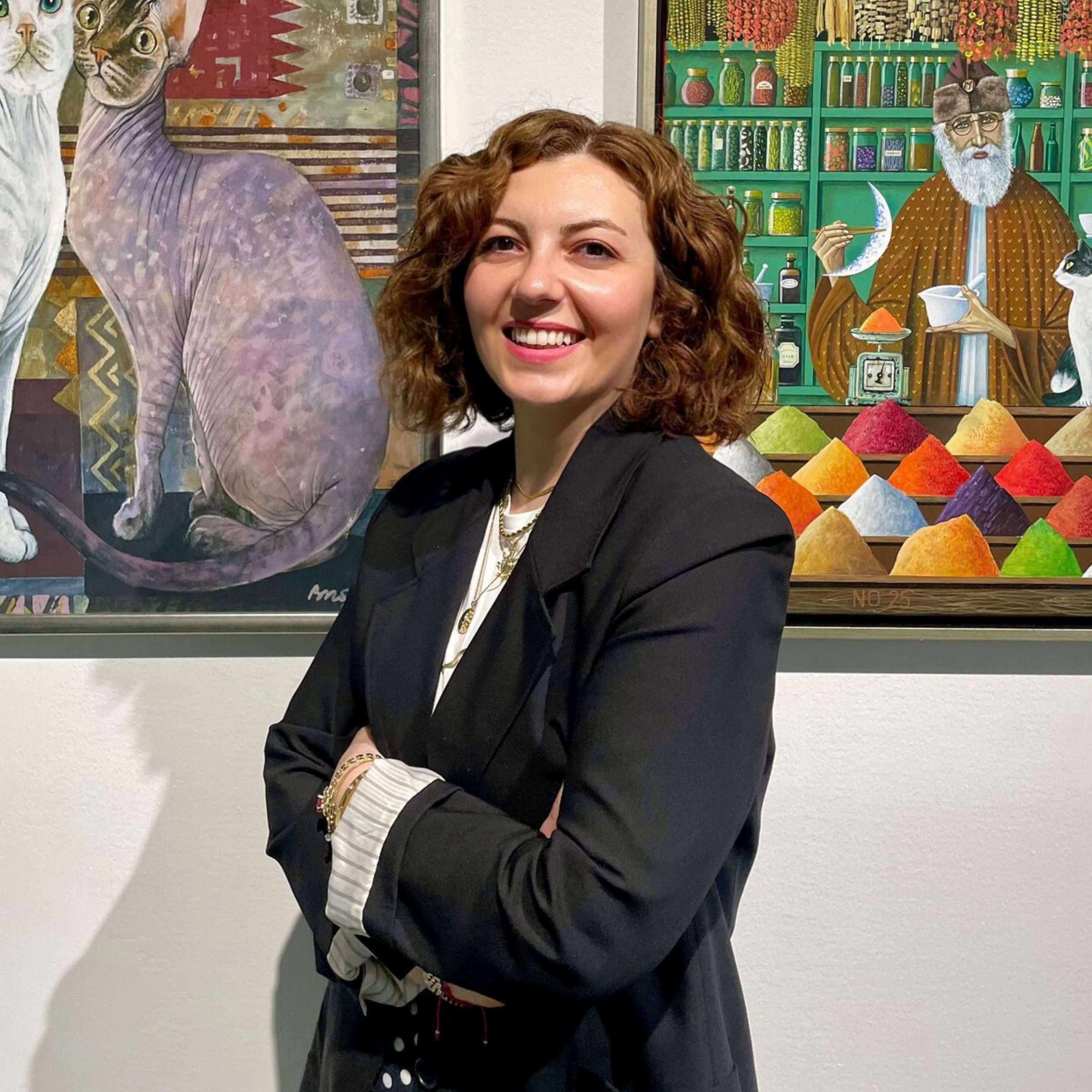
Belgin Begüm AKTAŞ
Executive Assistant & Strategic Support Specialist
- 02322934605
- begum_aktas@izmir.bel.tr
Esin Şahin Güler
Mediterranean Languages Center Course Officer
- 0232 293 6049
- esinguler@izmir.bel.tr

